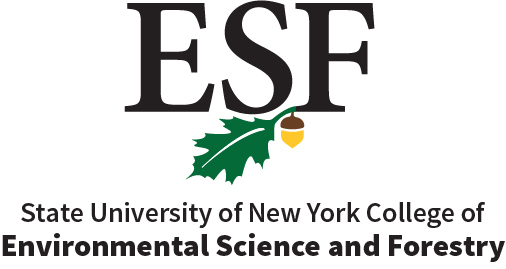SAF Learning
A Forester's Guide to Thinking About Rights and the Greatest Good
-
You must log in to register
- Non-member - $54
- Member - $34

Microcourse information
This virtual microcourse – curated by SUNY College of Environmental Science and Forestry’s Dr. Marianne Patinelli-Dubay – is an introduction to thinking about forest management through the lenses of rights and the greatest good. Gifford Pinchot sets the stage stating Where conflicting interests must be reconciled, the question shall always be answered from the standpoint of the greatest good of the greatest number in the long run. In this microcourse you will dig into the hidden challenges within forestry’s primary directive including the sometimes-contested definition of what constitutes the good, how to think about harm, and exactly how long is the long-run? In worksheets completed in your own time you will think through what is involved in recognizing the full and complex range of human and non-human values, time horizons and how to think through actions that cause harm or lead to a destabilized ecosystem.
Is this microcourse for you?
This microcourse is designed for foresters and natural resource professionals seeking an expanded exploration of professional ethics with forestry and natural resources relevant applications.
Open registration
Registration remains open through September 19, 2024, 11:59 pm ET.
Pricing
$34 for SAF Members
$54 for Non-members
Join SAF today to save $20 on your microcourse registration and to take advantage of SAF's growing member benefits including here on ForestEd.
Note: Pricing has been reduced to accommodate the purchase of corresponding required microcourse materials through an external partner.
Start date
Microcourse content will be accessible starting September 19, 2023.
Access Period
Microcourse access will remain open through September 19, 2024 at 11:59 pm ET.
Microcourse Materials
To complete this microcourse, purchasing the following book is required if you don't already have access to it:
Practical Ethics: A Field Guide for Resource Managers, by Marianne Patinelli-Dubay, Kendall Hunt Publishing, 2023. Purchase the book here!
Digital e-book access instructions are accessible within the Supporting Resources Tab above. Remember your e-book login for your unique access.
PLEASE NOTE: The digital e-book has a limited period of access - 180 days - and your unique login access. The printed hard copy has no access limit.
Microcourse content is sourced from this book, alongside the required readings and case study that you will address within this microcourse.
Microcourse pace
This microcourse is self-paced with an estimated completion time of 1 hour.
Learning Objectives
Upon successful completion of this microcourse, you will be able to:
1. Apply techniques to work through an ethically weighted situation.
2. Identify each stakeholder who is affected by decisions made in the provided management scenario.
3. List all stakeholders who would have a rights claim, and specify if there is an order of importance.
4. Determine how you would respond to constituents whose rights you have not prioritized.
Rubric
Successful completion of the microcourse is measured by the completion of all learning components. This includes viewing the presentation, reading the assigned chapters, reviewing the case study, and then downloading and completing a series of self-guided inquiries in worksheet form. Each of the two worksheets are tied to the scenario provided in the case study. These worksheets are yours to keep.
Microcourse Evaluation
Participant feedback is appreciated to help the microcourse curators and subject matter experts continually improve the microcourse for future participants.
CFEs
Upon successful completion of this microcourse, you will earn 1.0 CFEs in Category 1. CFEs will automatically be added to your CFE record located on www.eforester.org.
Certificate
Upon successful completion of this microcourse and microcourse evaluation, participants may download and print a certificate verifying completion of the microcourse and earning CFEs. CFEs will be uploaded to participant CFE records by the end of the day (11:59 pm ET) upon microcourse completion.
Get Started or Return to Place in Microcourse
Once you are registered for the microcourse, access this microcourse within your MY DASHBOARD. You can pause at any point during the microcourse, and you can return right where you last left off. Simply select where you last left off and then keep on working your way through the microcourse. Connect with SAF if you have any access questions.
Need Help?
For ForestEd questions, visit FAQs or email ForestEdSupport@safnet.org. For questions about this microcourse's content email Marianne Patinelli-Dubay at mpatinelli@esf.edu. For technical assistance, go to help.commpartners.com for self troubleshooting and/or live chat, or you can email ForestEdSupport@safnet.org.
Refund
This is a non-refundable item. Please view FAQs for additional information.
Key:
| Access Date | Quiz Result | Score | Actions |
|---|
Browser Recommendation
Use Chrome, Firefox, Edge, or Safari.
DO NOT USE Internet Explorer.
Quick Search
Customer Support
If you need assistance with registration, accessing a ForestEd product you purchased, or other customer service-related issues, please email ForestEdSupport@safnet.org during normal office hours: Monday - Friday, 9:00 am - 5:00 pm ET.
Sponsors
For sponsorship opportunities, contact Naomi Marcus at marcusn@safnet.org
ForestEd Suggestion Box
Technical Support
For technical support, email ForestEdSupport@safnet.org